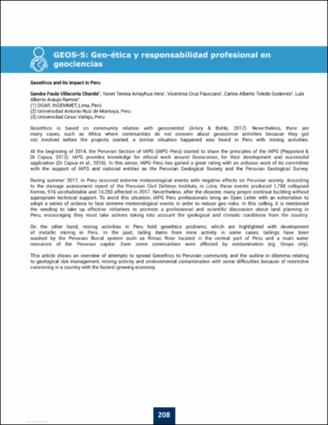Please use this identifier to cite or link to this item:
https://hdl.handle.net/20.500.12544/4571Files in This Item:
| File | Description | Size | Format | |
|---|---|---|---|---|
| Villacorta-Geoethics_impact_Peru.pdf | Artículo de congreso | 235.06 kB | Adobe PDF | View/Open |
Items in DSpace are protected by copyright, with all rights reserved, unless otherwise indicated.











